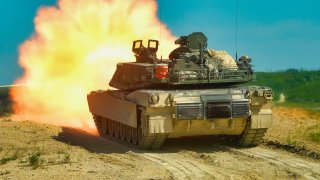The Kursk Gamble: Ukraine's Bold Move and the Risk of Russian Retaliation
In a bold move, Ukrainian forces advanced into the Kursk region of Russia, creating new dynamics on the battlefield. This operation, while potentially a game-changing move by Ukraine, could lead to escalation, including increased Russian use of chemical weapons.
Ukraine’s Kursk Gambit: an End to Hostilities or Escalation? - In a bold move, Ukrainian forces advanced into the Kursk region of Russia, creating new dynamics on the battlefield. This operation, while potentially a game-changing move by Ukraine, could lead to escalation, including increased Russian use of chemical weapons.
While Ukraine controls 500 square miles of Russian territory, there is no guarantee that the offensive will prove decisive, and it could weaken Ukraine's position on the eastern front in the Donbas. Russia has rushed at least 30,000 additional troops to the Kursk region to counter Ukraine’s advance is worrying, but predictable. Moscow’s willingness to throw waves of troops against the frontline regardless of the casualty rates poses a serious challenge to Ukraine to hold its gains in Kursk and not have its defenses buckle at other points along the frontline.
Might Ukraine’s seizure of Russian territory provoke Moscow to escalate its response and use nuclear weapons? Earlier this month Russia’s Deputy Foreign Minister Sergey Ryabkov said Russia will revise its nuclear doctrine in response to, “recent conflicts, including…our Western adversaries’ escalation course in regards to the special military operations.”
Putin’s tepid response to Ukraine’s advance on Russian territory should temper any nuclear fears. Former Russian diplomat Nikolai Sokov argues that the real concern is not Russia using a tactical nuclear weapon to counter Ukraine’s advance in Kursk, but rather that the, “uncertain and ad hoc nature of Russia’s red lines conveys considerable risks”. Since Moscow perceives Ukraine as merely the tip of the Western alliance spear even a “small, but visibly consequential” event could escalate to horrific levels of violence.
Yet, Moscow is not likely to spark a nuclear conflagration over the occupation of a slice of Russian territory and Kyiv will not order its forces to march to Red Square to topple the Russian regime.
Russia is more likely to continue its brute force strategy resulting in thousands of casualties and destroying towns and cities to capture them. Furthermore, if the Russian response to Ukraine’s advances in Kursk grinds to a plodding pace, the Russian military may increase its use of World War I-era chemical weapons to terrorize Ukrainian forces.
This is a more likely escalatory step than using a nuclear weapon. Ukraine has claimed that its forces have suffered thousands of Russian military chemical attacks with riot control chemicals and chloropicrin, a chemical used in World War I.
Germany has led a coalition of countries seeking to hold Russia accountable for violating the Chemical Weapons Convention (CWC), the international treaty banning the use of these weapons. They cite Russian soldiers describing their use of toxic chemicals against Ukrainian forces on Russian government-controlled television news broadcasts. When confronted with this evidence, Russian officials deny it and claim the sources are not credible.
Reports from Russian soldiers, photos of Russian munitions, and testimony from Ukrainian forces who suffered from chemical attacks have thus far not been enough to swing global opinion against Russia. Charging Russia with the use of chemical weapons and war crimes for attacking Ukrainian hospitals, schools, apartments, restaurants, and energy infrastructure should galvanize indifferent governments to take a stand against Russia’s gross violations of responsible state behavior. Emerging powers trading with Russia and giving it political legitimacy need to stop their complicity in Russia’s war crimes.
Tragically, the conditions for Russia to engage in meaningful negotiations with Ukraine to end the conflict will likely depend upon a combination of significant battlefield losses and international pressure urging Russia to act as a responsible state within the international system. Currently, these conditions seem distant despite Ukraine’s advances in the Kursk region.
About the Author:
John V. Parachini is a senior international and defense researcher at RAND, a nonprofit, nonpartisan research institution. He recently served at the State Department’s Office of Chemical and Biological Weapons Affairs.
Image Credit: Creative Commons and/or Shutterstock.


